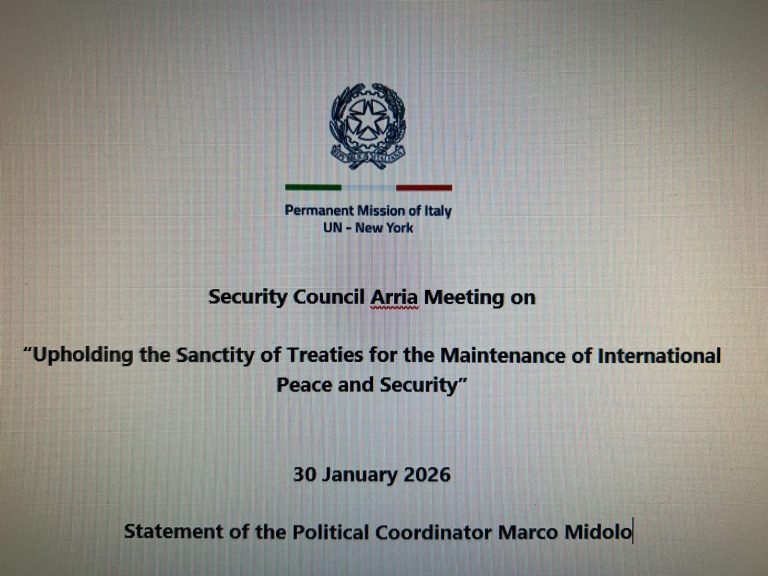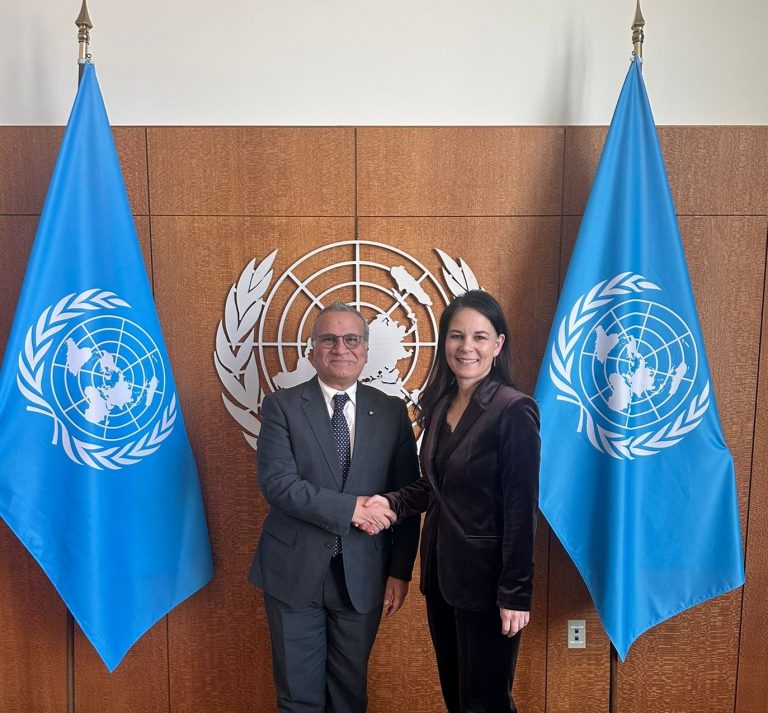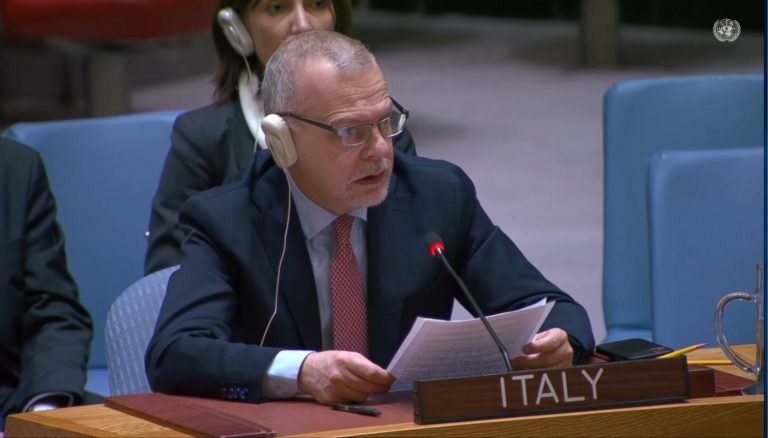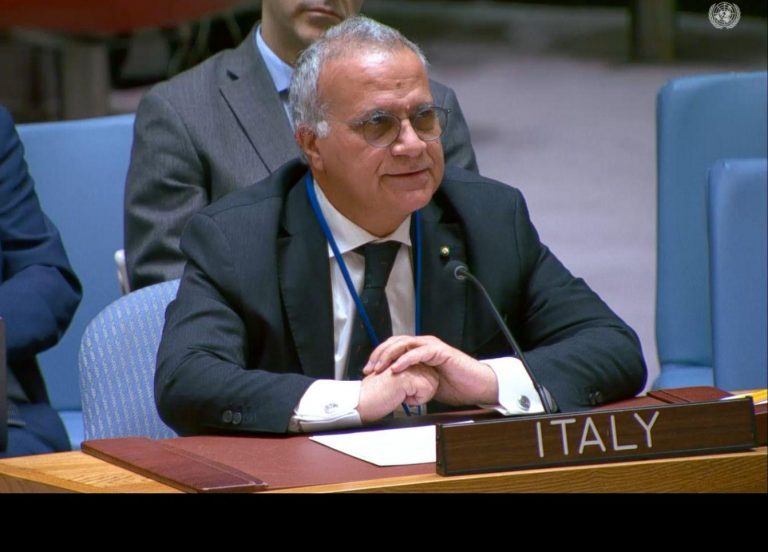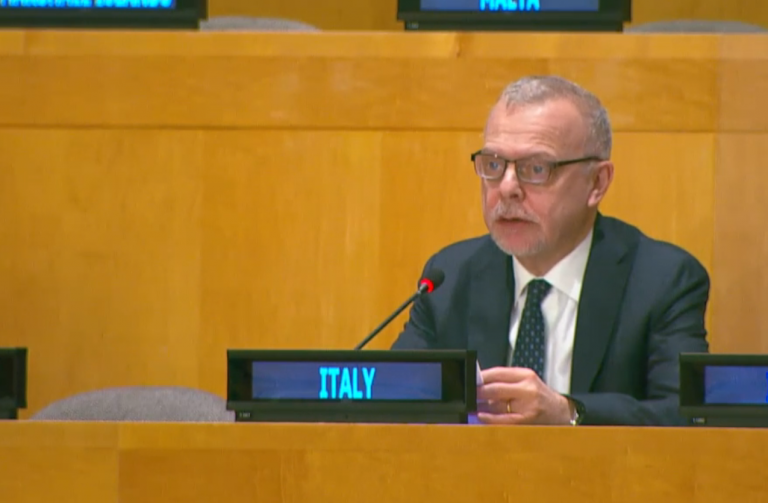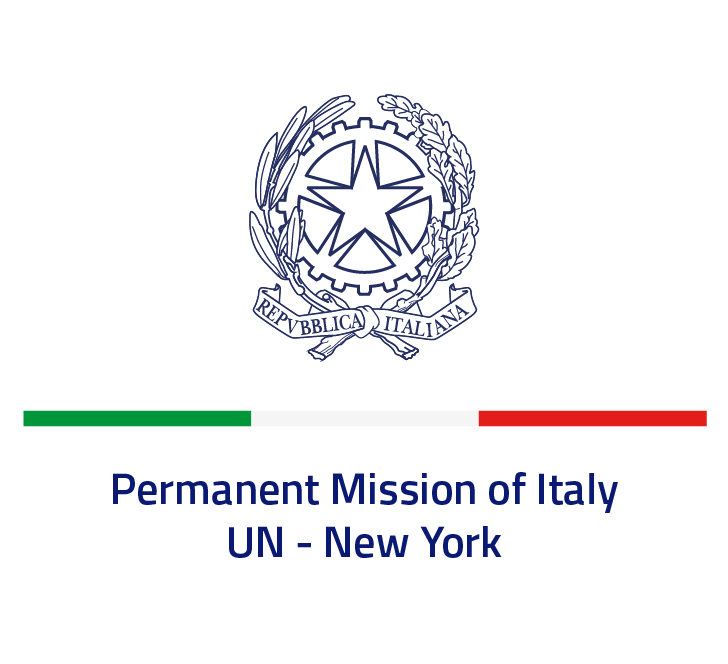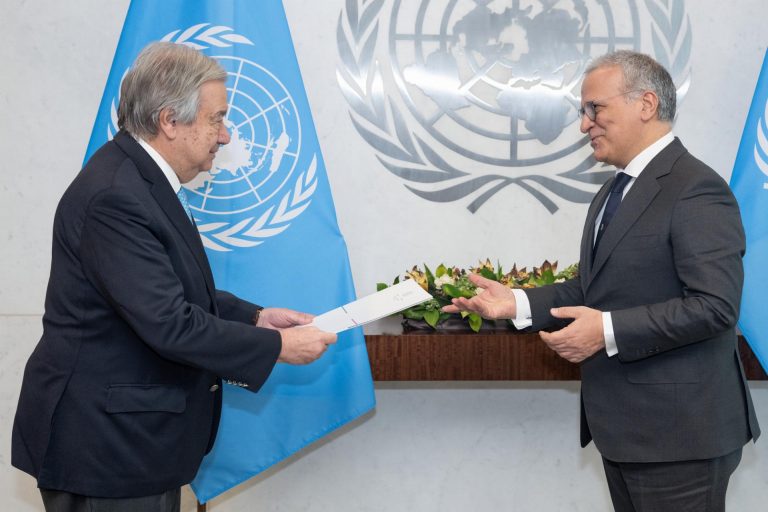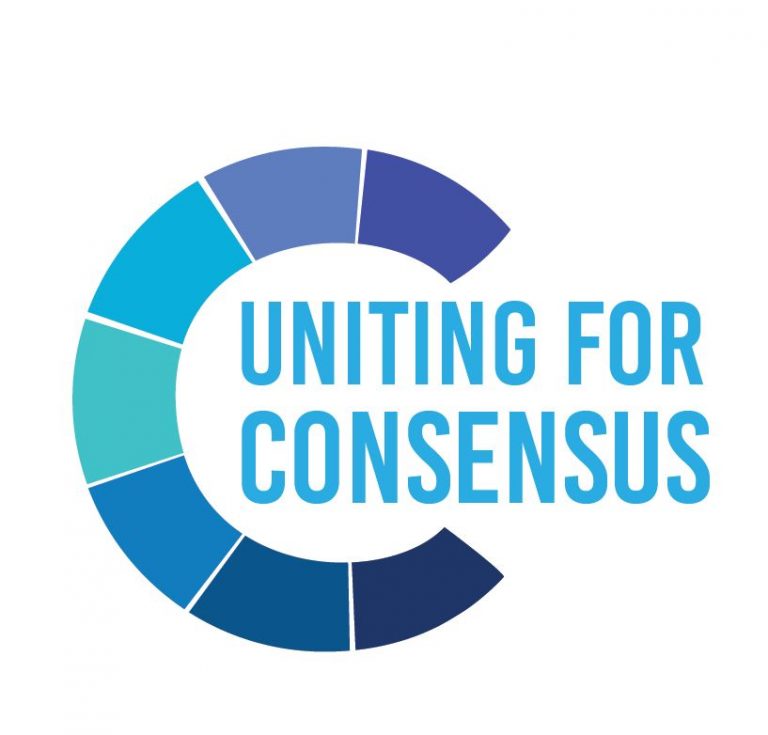Mr. President,
Thank you for organizing this relevant debate.
We are all convinced that a more transparent and functional Security Council is an absolute need to regain the trust of the public opinion in the capacity of the United Nations to ensure international peace and security. The working methods of the United Nations Security Council play a crucial role in the Council’s ability to fulfil its responsibility for maintaining international peace and security.
The most recent developments, with important processes blocked by vetoes or products requiring consensus, such as Presidential Statements, which also remain stalled using the current methods of work, make today’s Open Debate even more timely and needed.
We commend your endeavor, Mr. President, as Chair of the Informal Working Group on documentation and other procedural questions. In particular, we appreciate the fact that the IWG has been striving to ensure the implementation of the Presidential Notes as well as the Provisional Rules of Procedure of the Security Council and will work on updating revised Note 507, which addresses the demand for enhanced transparency, inclusiveness and interaction of the Council with the rest of the UN membership. Until now much has been done in this regard, but we can all agree that there are margins for further improvement. We look forward to hearing positive developments in this regard soon.
We are convinced that, within the Council, Permanent and Non-Permanent members should work on equal footing as much as possible. More generally, E10 should be allowed to play a greater role in the work of the Security Council. The distribution of duties among the Council Members should be fairer and more balanced when it comes both to the chairmanship of subsidiary bodies and to the practice of penholderships and co-penholderships. Moreover, it is essential that views and interests of Member States affected or concerned by any matter on the agenda of the Council be heard and taken into account in its work.
It is essential to increase the cooperation between the Security Council and the Peacebuilding Commission, and we look forward to seeing the Council regularly request, deliberate and draw upon the PBC specific, strategic and targeted advice.
We also strongly support the practice of inviting briefers from the civil society to the Council meetings, ensuring adequate women’s participation and greater gender inclusivity and equality, in order to allow the Council members to hear different voices and points of view before deliberating.
It is furthermore important to hold public meetings of Security Council as much as possible, while keeping closed meetings and informal consultations to a minimum, in accordance with the exception they were originally meant to be.
Mr. President,
The improvement of working methods is also part of the broader discussion on the comprehensive and effective reform of the Security Council, which should aim at a more transparent, democratic, efficient and, in our view, also more accountable Security Council.
It is hard to speak of working methods without reflecting at the same time on the root causes of the Council’s inaction, which are directly and closely linked to the veto, regardless of whether it is actually used or simply threatened.
This is why Italy supports all initiatives aimed at self-restraining the exercise of the veto – such as the French-Mexican initiative and the ACT Code of Conduct – and was among the co-sponsors of the innovative GA resolution 76/262 known as the “veto initiative” spearheaded by Liechtenstein. This is also the reason why we do not support the expansion of the Security Council in the category of Permanent Members, as it would generate additional vetoes and further discrimination and divisions among Council members thus making it less efficient, less democratic, less accountable to the general membership.
Finally, in order to enhance the effectiveness of the Council, Italy would welcome the proper application of the provision under article 27.3 of the UN Charter, according to which any member of the Council involved in a dispute, including the Permanent Members, should abstain from voting on decisions related to that dispute.
I thank you.








